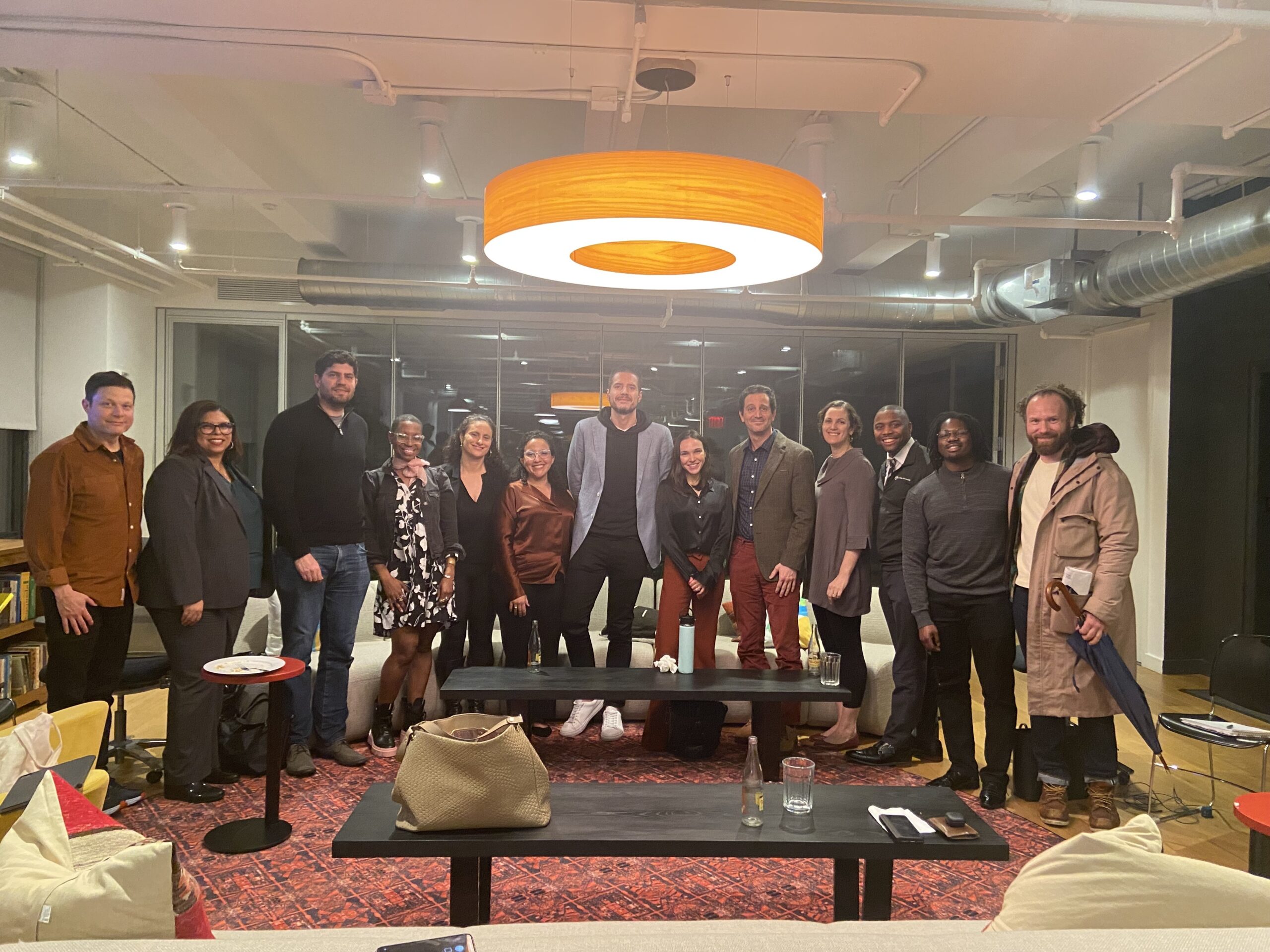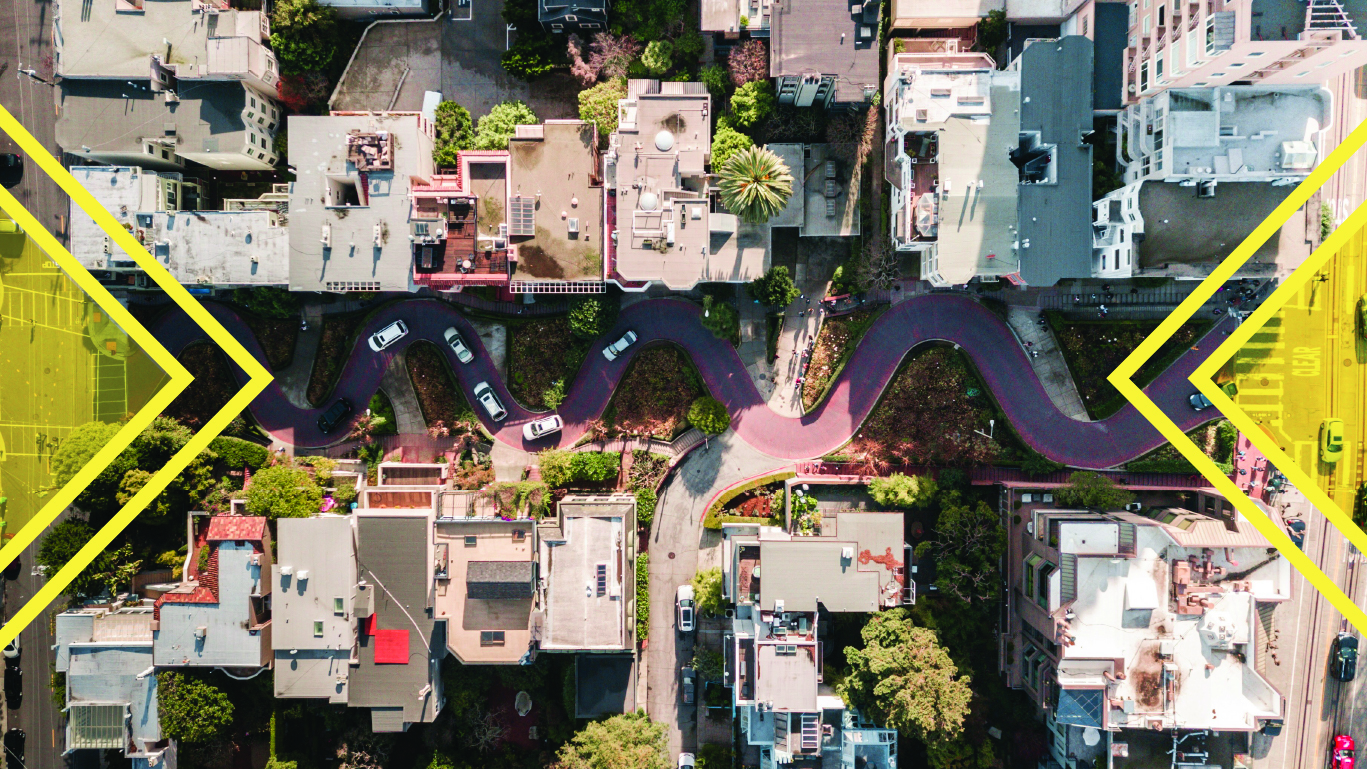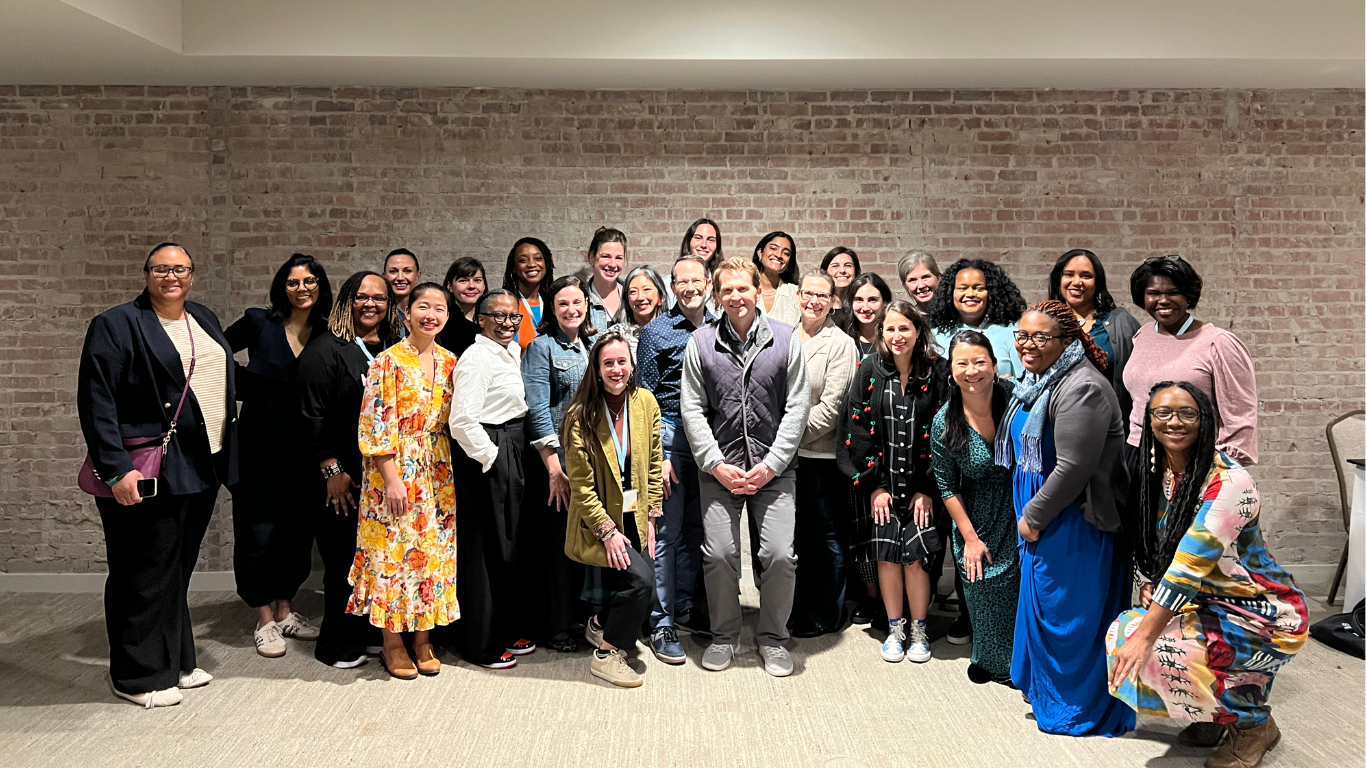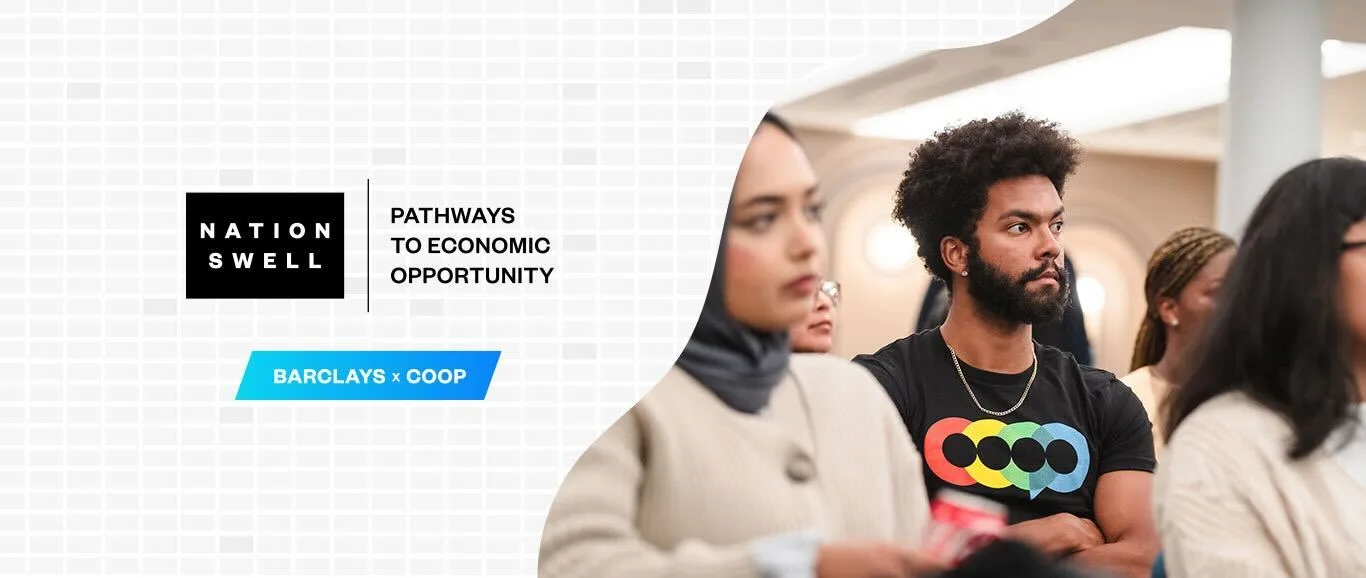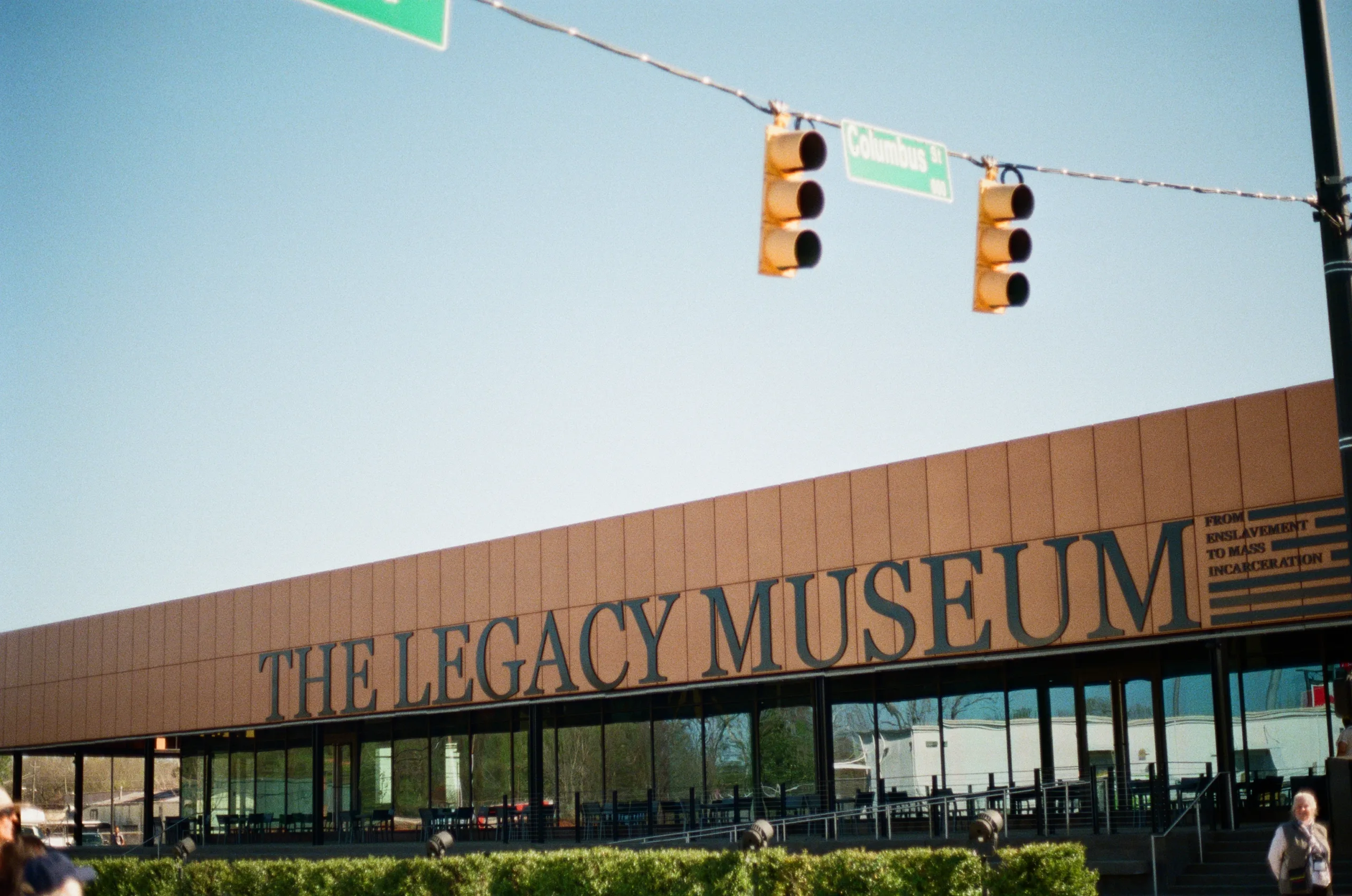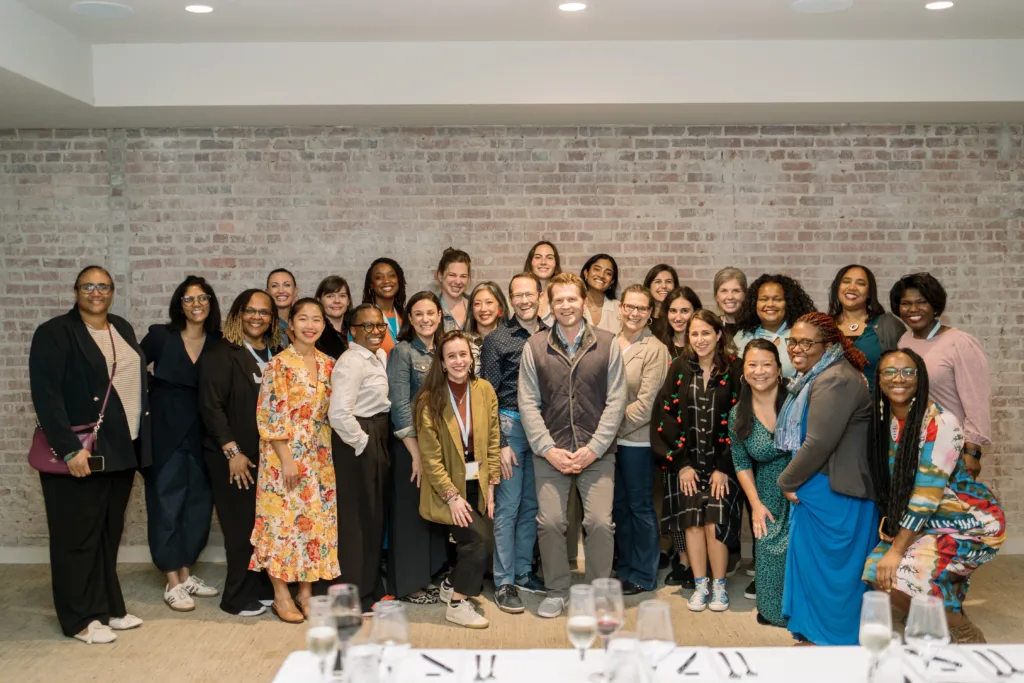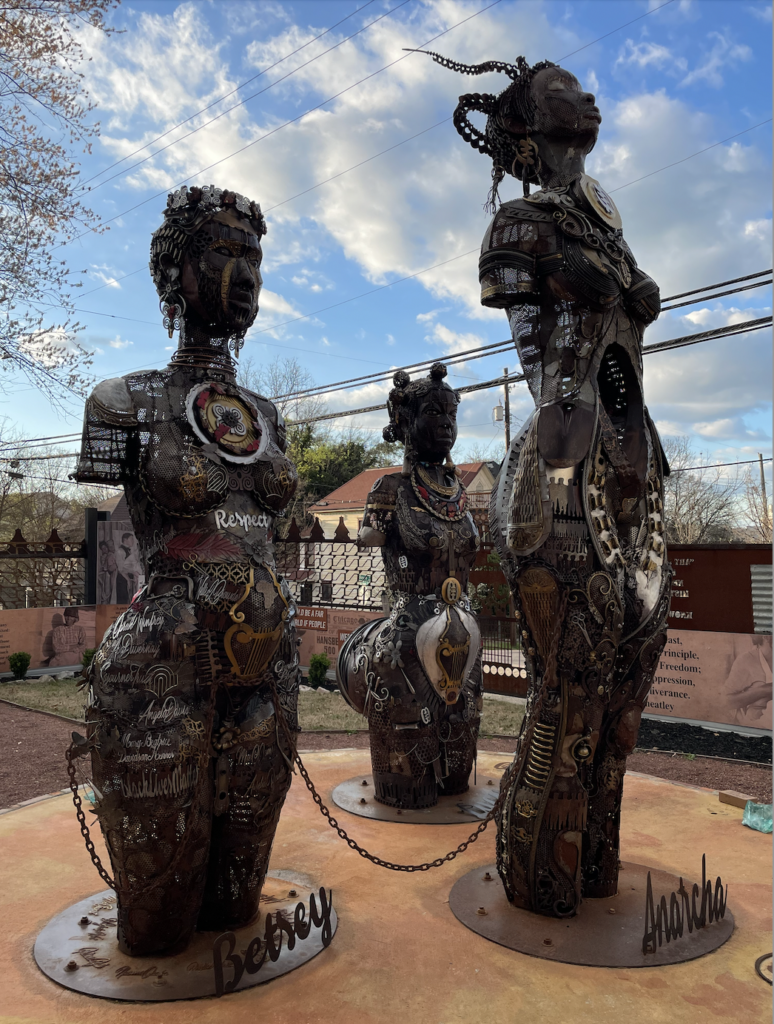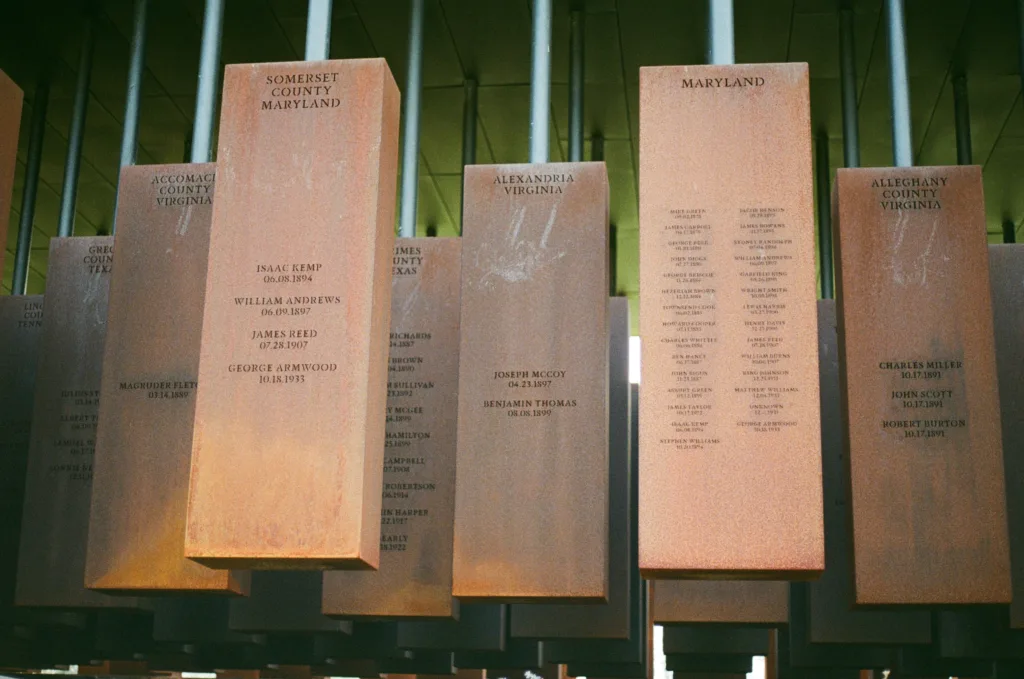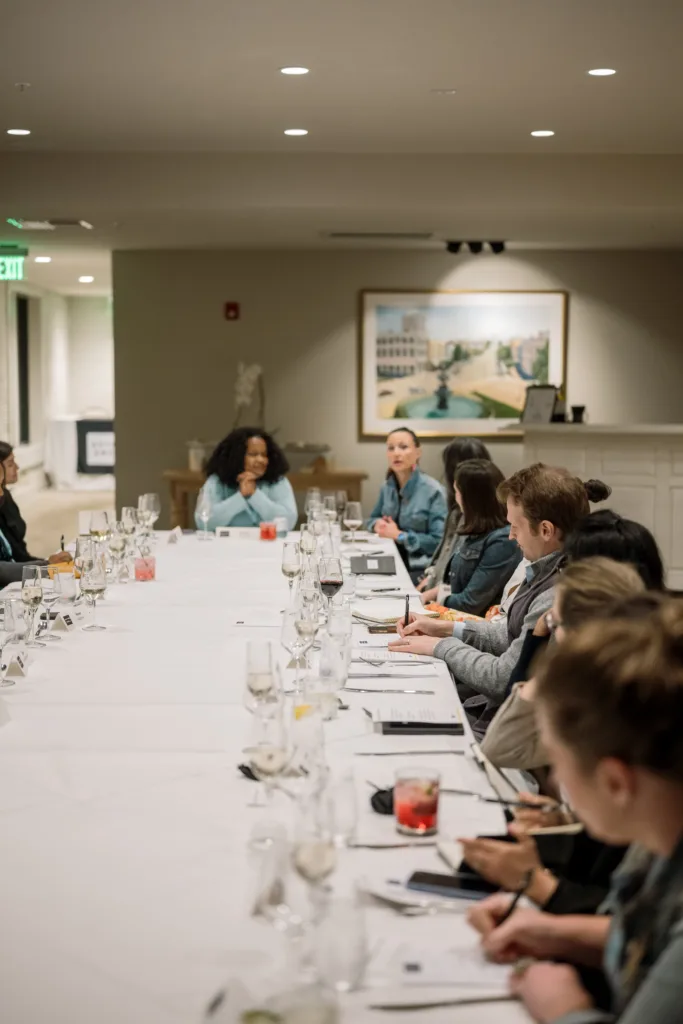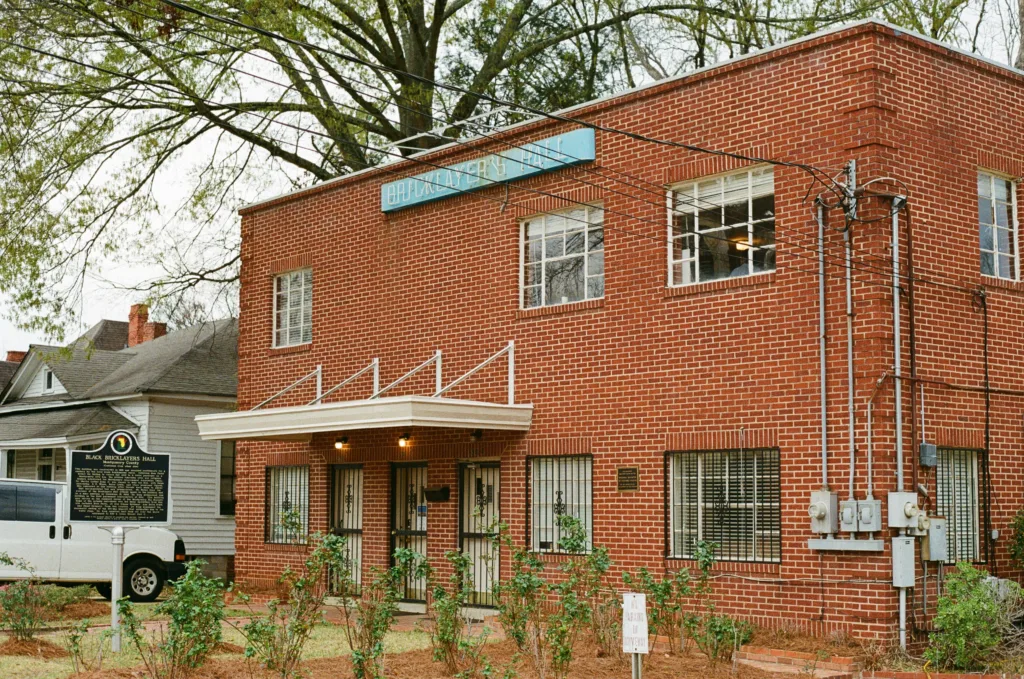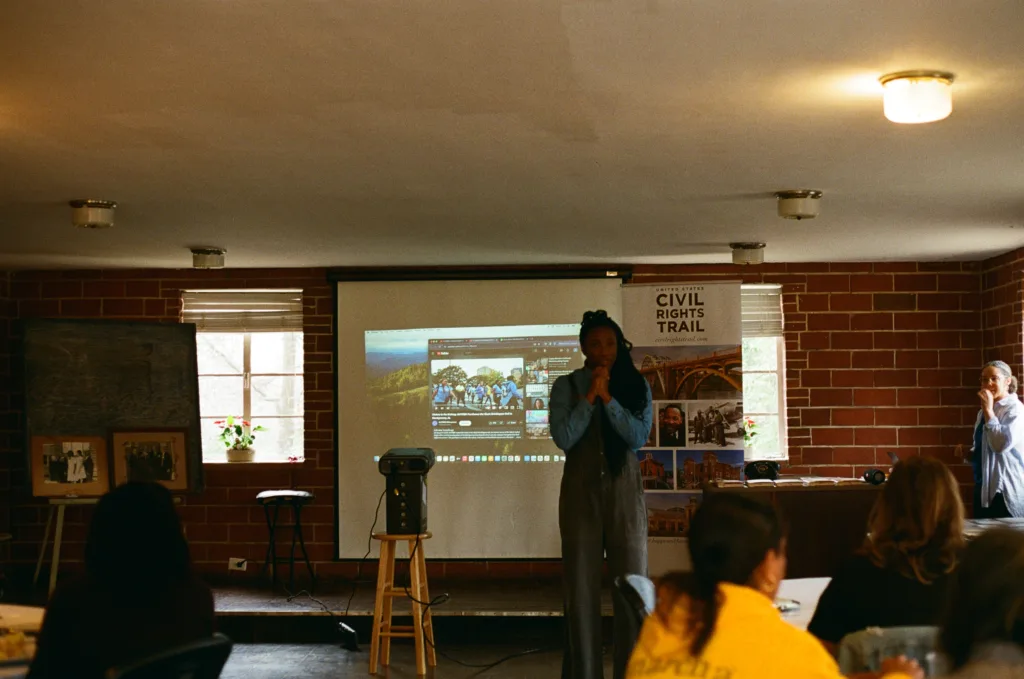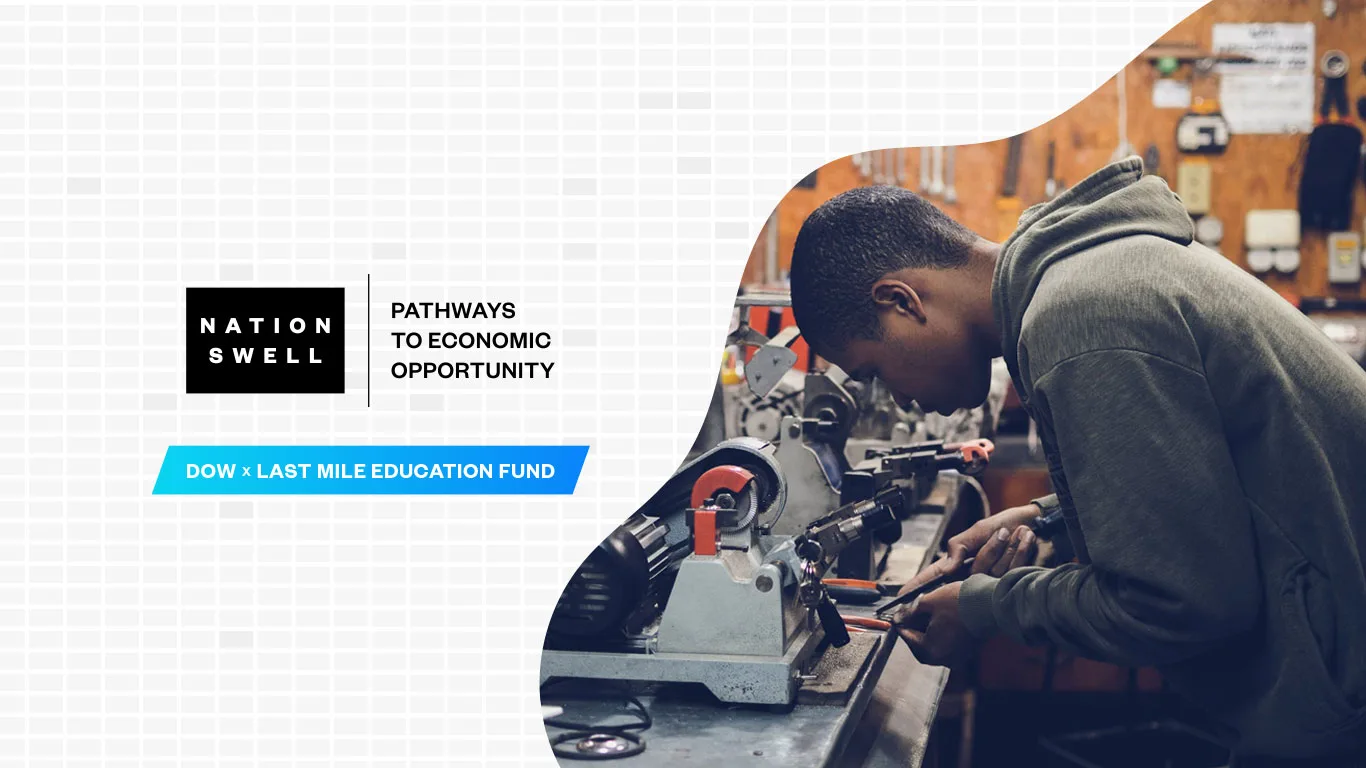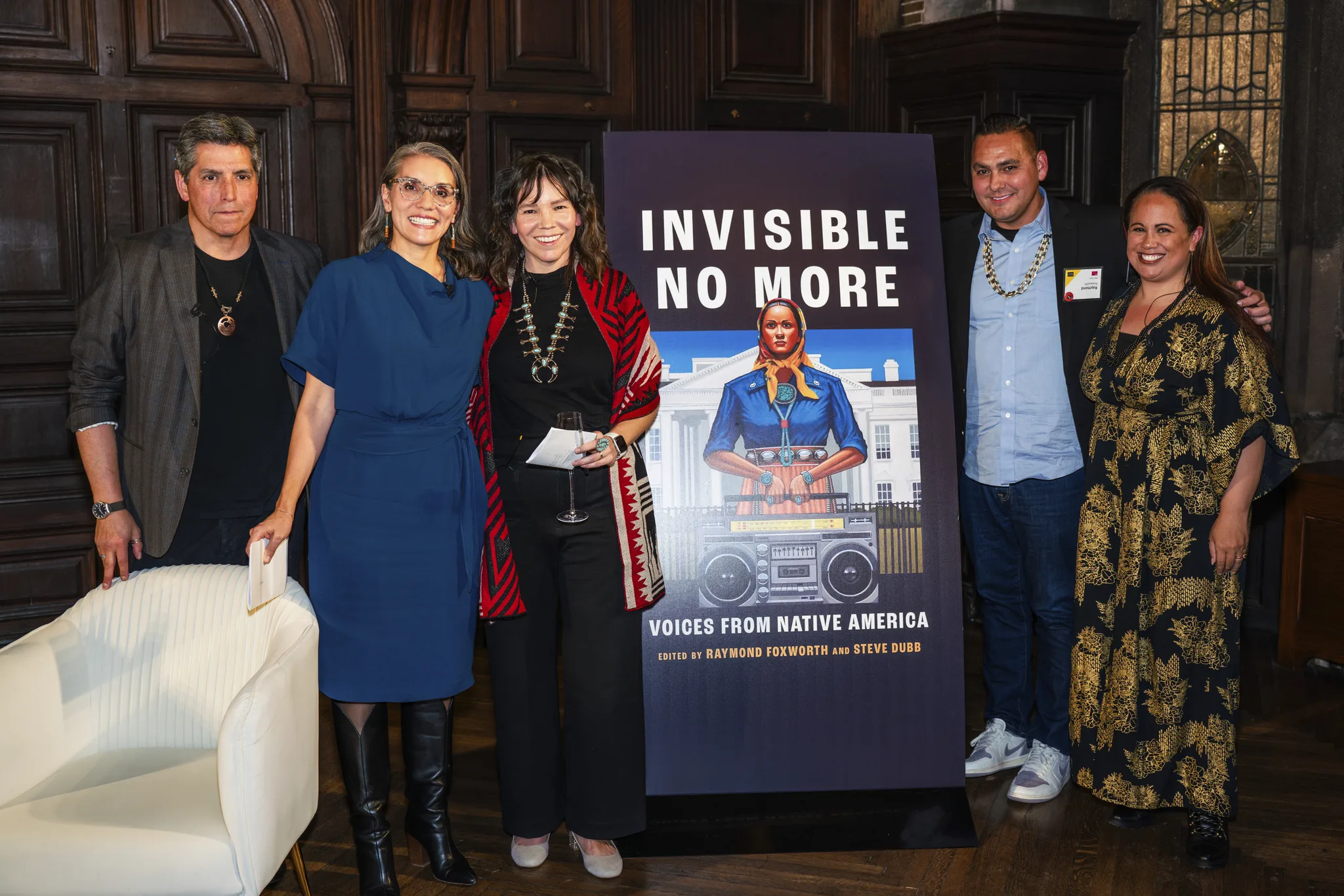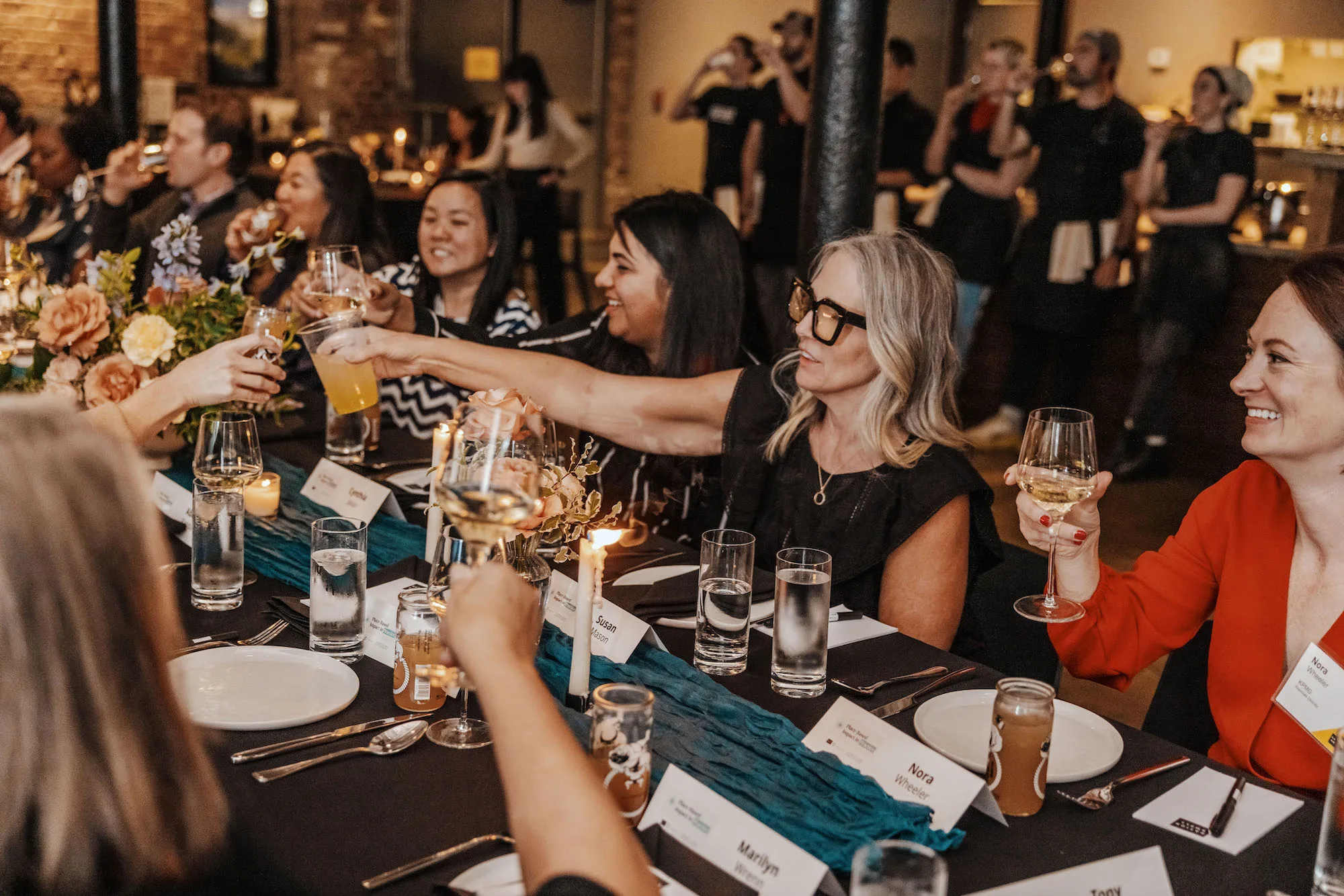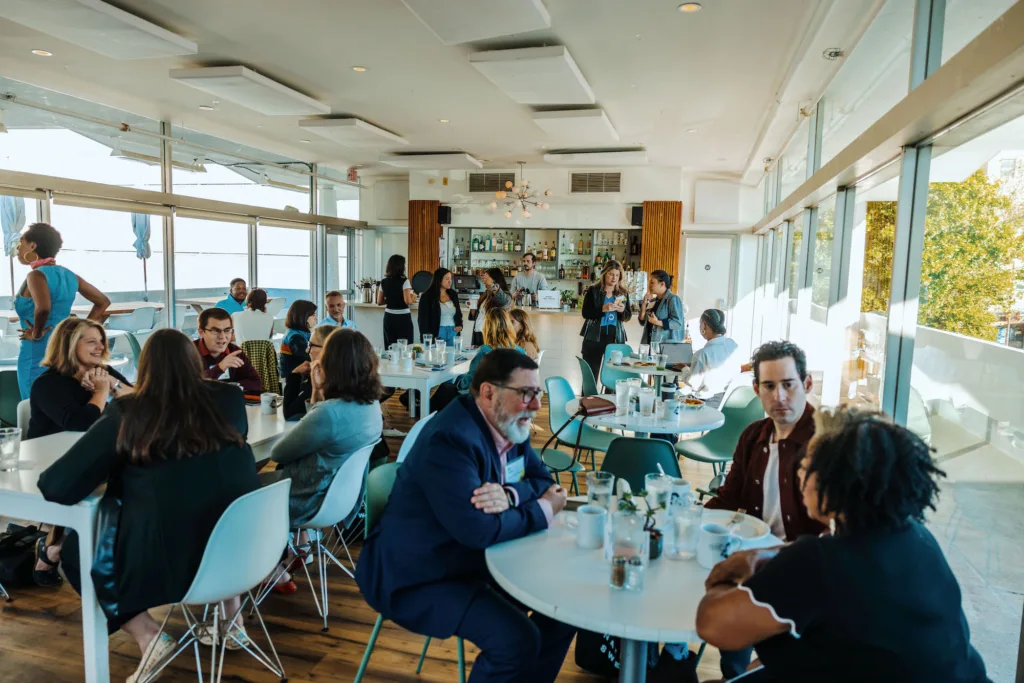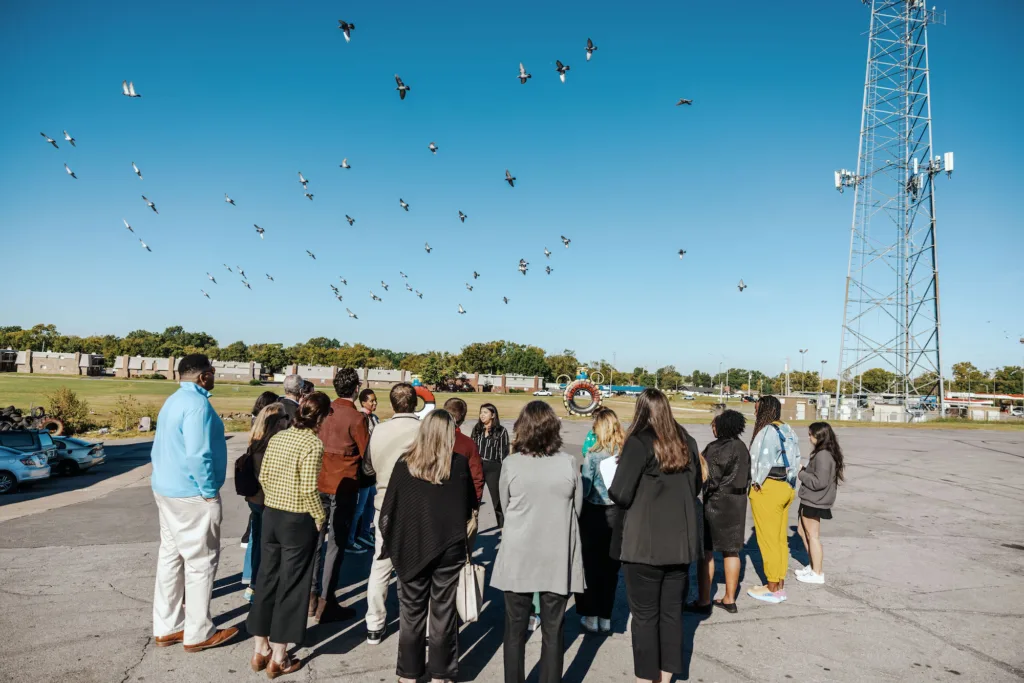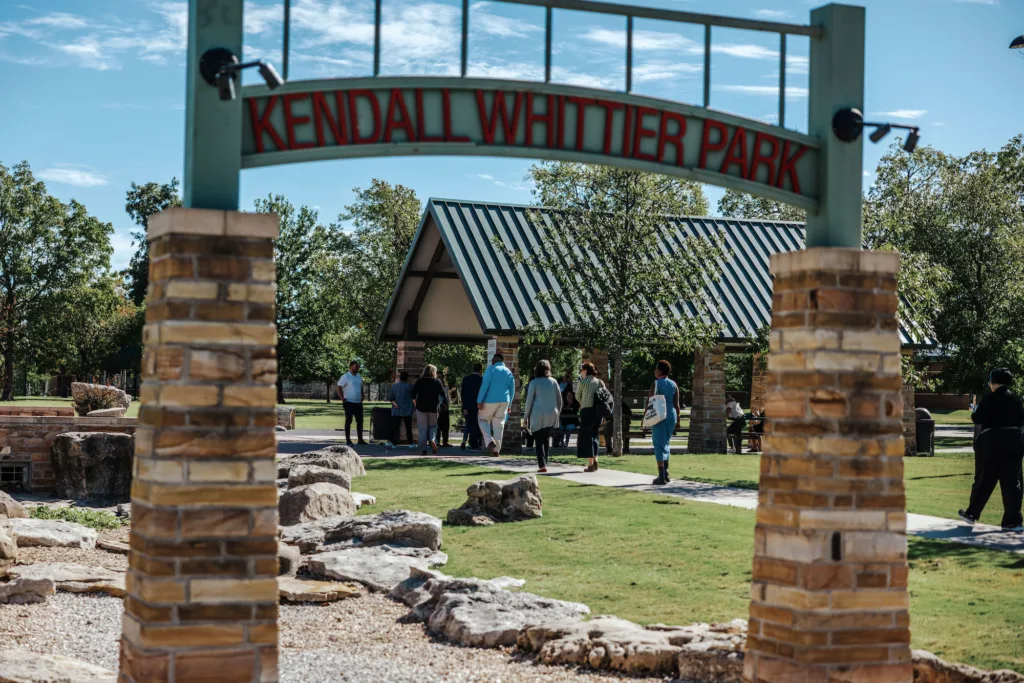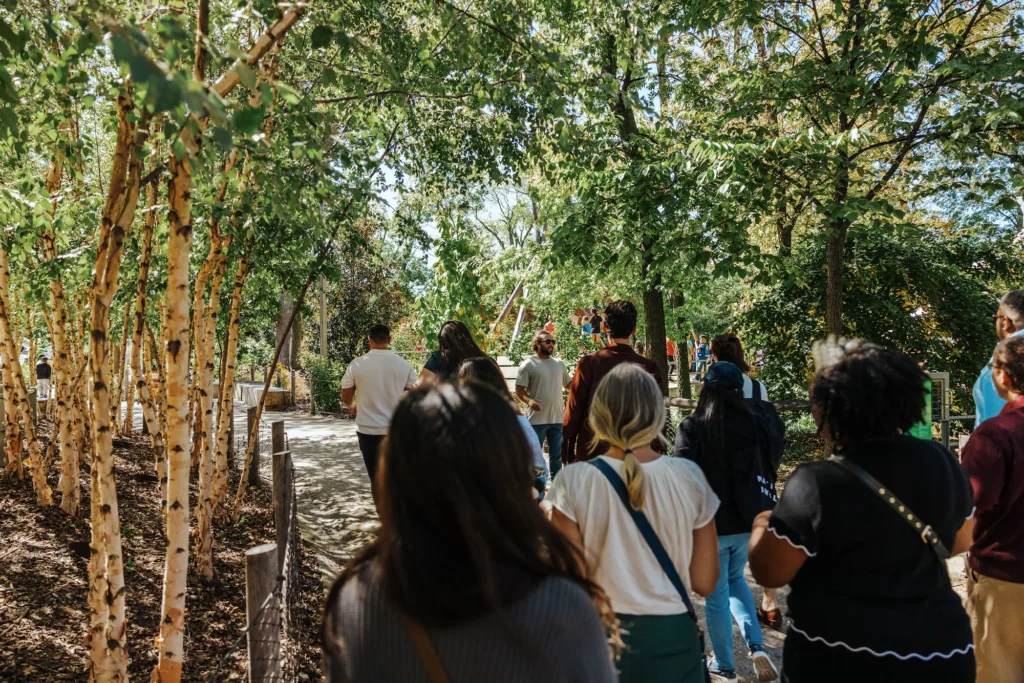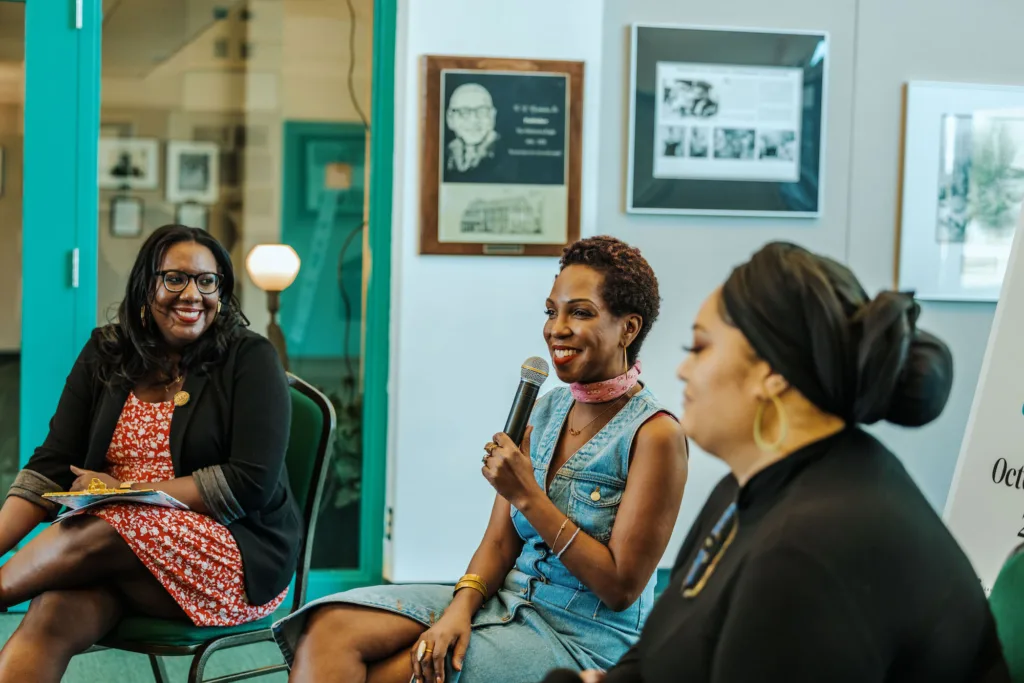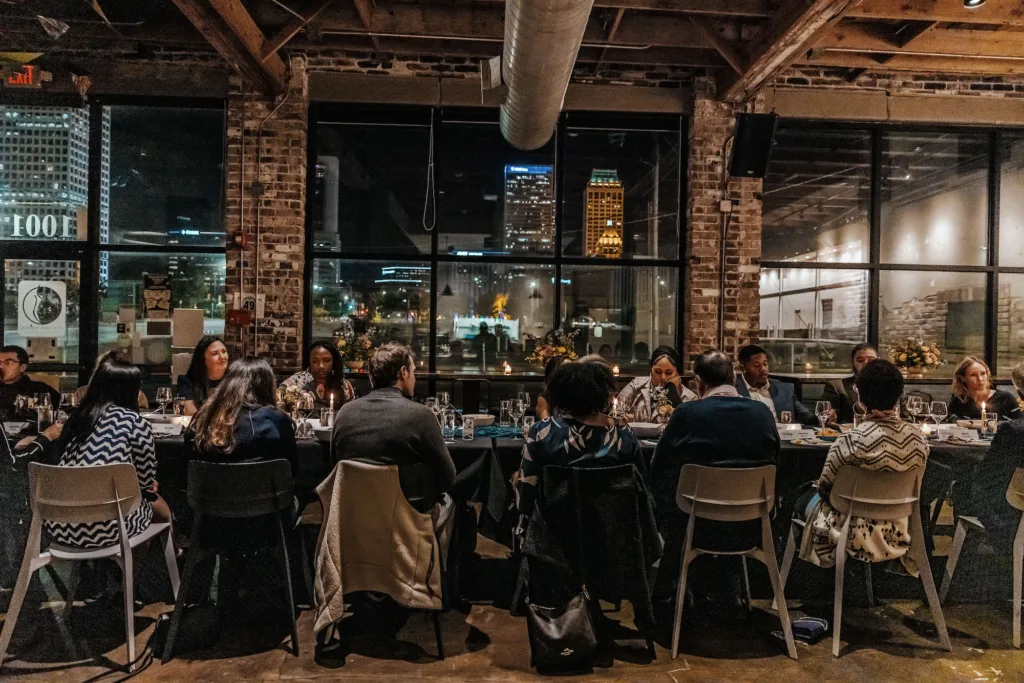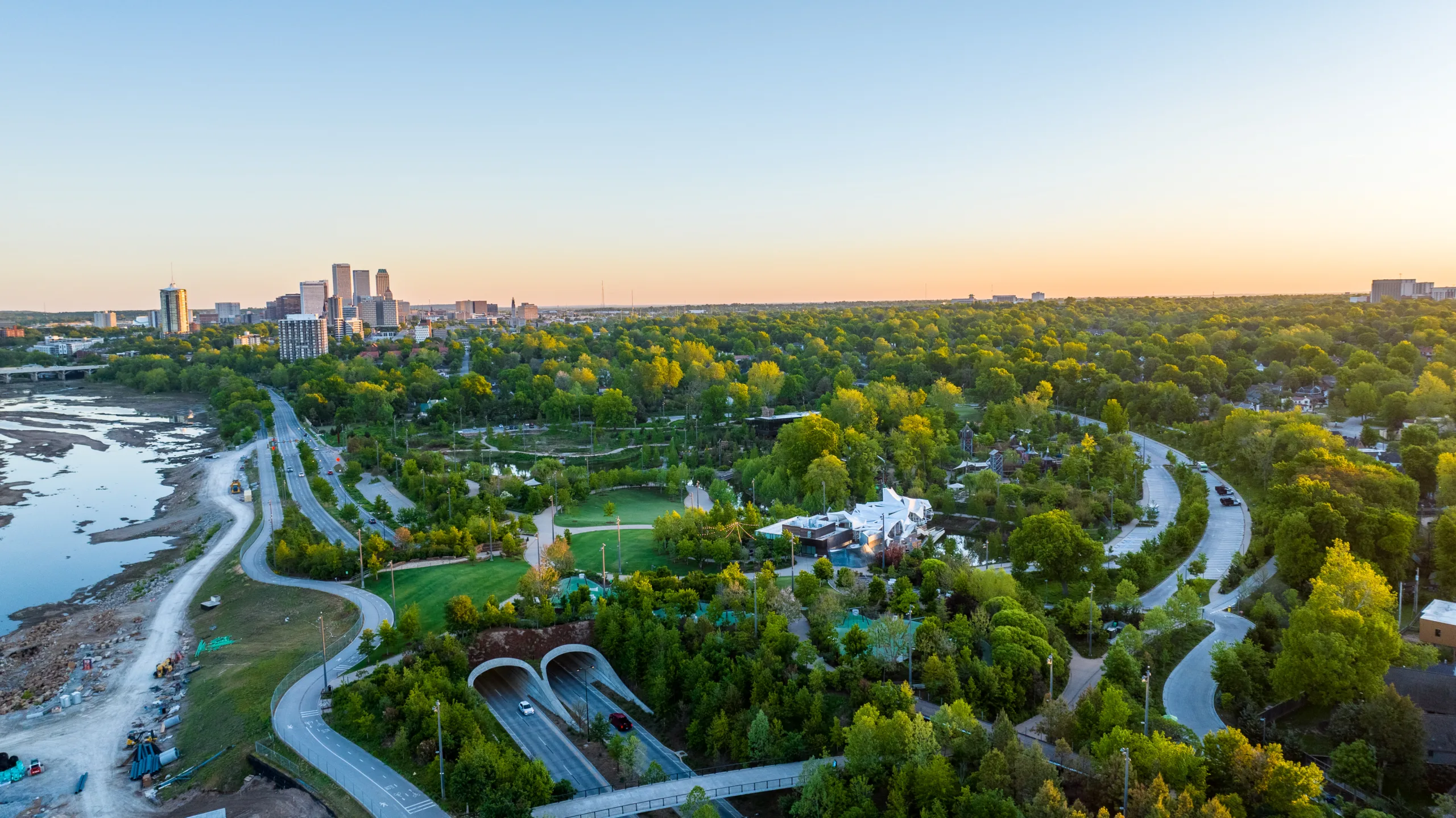In Q2, members of the NationSwell Council and team set out across the U.S. for a Salon series dedicated to exploring Mobility in America.
Specifically, our members were interested in unpacking the role our education, government, communities, and families have to play in influencing social and economic mobility — and how our own personal narratives are indelibly intertwined with broader mobility trends.
The series brought us face-to-face with transformative leaders from diverse sectors, sparking discussions that were as rich as they were enlightening. Some of the Council members who were in attendance came together to describe the most actionable insights, resources, and practices that were shared during the events — our full recap appears below.
Key Insights and Questions:
- Mentorship is vital to economic and social mobility
- We’ve created a narrative of a post-secondary path that is not the reality for most
- Policy and legislation are key for advancing mobility
- AI will change how society calibrates social mobility
- Is social mobility a proxy for proximity to whiteness?
- How much coercion are we willing to assert to increase social capital?
- Psychological barriers to success can be overcome by strategies that address the mental models of family and community
- Is scale the enemy of impact?
- To be truly inclusive, DEI initiatives must include the ex-offender population
- How do we shift narratives when media norms aren’t built for narrative shifts?
What leaders who attended are saying:
NationSwell asked members in attendance to respond to two key questions:
- In your own work, how can you support the strength, the visibility, the power, and the influence of ideas, individuals, and institutions from outside the dominant frames that shape and distort our world—be they whiteness, US exceptionalism etc.
- In your work, how can you support and elevate the ideas, individuals, and institutions that are often overlooked or marginalized by mainstream perspectives? (Who can you lift up and how?)
Brian Lovins, President, Justice System Partners
At JSP, we work closely with justice involved individuals and find that while our society says they believe in 2nd chances, we often create significant roadblocks to bringing people back to our communities after a prison sentence. Two major challenges–housing and employment. We have amazing people who have served their sentences and need legitimate pathways forward so they can be their best self. Finding ways to eliminate the labeling of people as ex offenders, convicts, and inmates; centering their humaness, giving grace, and providing direct paths to housing and employment would be great first steps.
Baffour Osei, Robotics Lab Manager, Princeton University
In your own work, how can you support the strength, the visibility, the power, and the influence of ideas, individuals, and institutions from outside the dominant frames that shape and distort our world—be they whiteness, US exceptionalism etc.
We can intentionally create spaces and validate them with the authority structures that currently exist in our organizations. E.g. We’ve created a spontaneous book club in our lab focused on our library of books of autobiographies, analyses, etc. around individuals and groups of people from various socioeconomic backgrounds, ethnicities, religions, nations, and other dimensions of diversity. Conversations centered around these topics don’t usually happen in engineering settings and so this library along with the spontaneous book club events are meant to change that by creating spaces where these conversations that touch all of us can happen. We’ve had books donated to our library by other guests and faculty as well and continue to seek ways to grow attendance and encourage our lab residents to come and keep returning. I think a big portion of this is my attendance as the manager of the space and also getting faculty to attend as well as encourage their lab groups to attend. People will leave our robotics program to become leaders in academia and in industry and so it’s imperative that they have proper social frameworks with which to engage their future mentees, coworkers, and customers in person and with their products and services.
In your work, how can you support and elevate the ideas, individuals, and institutions that are often overlooked or marginalized by mainstream perspectives? (Who can you lift up and how?)
We can and have been doing this with the spontaneous book club. Among the books in our library are Crippled, Pedagogy of the Oppressed, Freedom is a Constant Struggle, The Hundred Years’ War on Palestine, Viral Justice, The New Jim Crow, and so many more titles. The Spontaneous Book Club structure allows our patrons to pick any book, read for 40 minutes, and then share what we read with the group and discuss. This allows us to learn about different authors’ perspectives on different topics and view tying lines between our various books since we’re all reading something different. Topics that we would’ve never discussed all of a sudden arise in these conversations and many of our patrons have shared taking action and changing behaviors as they learn new information. Our patrons also share how their personal experiences are reflected in these writings or may even contradict some of them. The point is this setting opens up all of these conversations and elevates these ideas, individuals, and institutions for discussion and adjusted behavior moving forward with a new respect and honoring for elements that have been invisible to us in the past.
Kanene Holder, Manager, Create Labs Ventures
As a former educator turned diversity trainer and ethical AI advisor, I’m often called in to manage a crisis. Too often it’s too late. My answers don’t focus on fixing the issue, but rather on preventing the issue and building the capacity to navigate disequilibrium.
Linkedin is filled with infographics and cheat sheets to maximize productivity and leverage IQ to boost KPIs but rarely are there tools to unleash EQ- emotional intelligence. This overemphasis on people being an ends to a means and a series of data points and accountability measures can trigger mental health issues due to their rigid adherence and reward for those who “succeed” at all costs. The costs include frayed relationships with family, friends, their self concept and their health.
The culture of work is starting to evolve beyond the ruinous compartmentalization that forces people to choose between their personal and professional goals, but not fast enough. GenZ is leading the charge but too often a culture undergird by a Puritanical work ethic is weaponized to shame them into submission rather than make accommodations that would benefit the mental health of all workers.
Additionally post Covid, I observe what I call “the trauma class”. People who regardless of social economic status are experiencing trauma and triggering the trauma of others. Trauma is no longer relegated to a tragic few or a large majority of those experiencing poverty. The trauma class is diverse. From those who experience school shootings to the opioid crisis and dealing with mourning due to Covid or not being able to afford healthcare, increasingly trauma looks like you and me. Even. when you are minding your own business, isolation from trauma is becoming more difficult. Due to rising rates of homelessness you might experience vicarious trauma as you witness the mental breakdown of someone on a train or in the street.
The solution is a paradigm shift that centers soft skills and is trauma informed to ensure people feel valued regardless of their ability to “perform”. Having a workplace that is conditional on performance is one fueled by fear which too often metastasizes into stress, resentment, overwhelm, burn out or worse. A workplace that values the whole human being can inspire more innovation, creativity and resilience because fear is replaced with trust. Leaders that master emotional intelligence can model how to balance personal and professional goals and co-create healthy ways for coworkers to deal with stress, grieving, health and other issues. Mental health can be a culture of wellness if designed with human potential and connectedness in mind.
Susan Mason, Founder, Susan Mason Consulting
In your own work, how can you support the strength, the visibility, the power, and the influence of ideas, individuals, and institutions from outside the dominant frames that shape and distort our world—be they whiteness, US exceptionalism etc.
I focus on amplifying diverse voices and perspectives. This includes:
- Prioritizing Underrepresented Narratives: Centering the experiences and insights of people impacted by the system first, instead of as an afterthought.
- Encouraging Proximity: The lived experiences of others helps the dominant culture understand exactly how systems impact individuals and communities. This promotes a deeper understanding of systemic issues.
- Strive to Operationalize: By consistently integrating best practices, organizations can move from constantly being in the education phase to truly achieving equity and inclusion. Inclusion is the only way to move past the dominant frames mentioned above; while learning is essential, incorporating these principles is the key.
In your work, how can you support and elevate the ideas, individuals, and institutions that are often overlooked or marginalized by mainstream perspectives? (Who can you lift up and how?)
- Promoting Inclusive Practices: Keep sounding the alarm that organizations must prioritize operationalizing diversity, equity, and inclusion.
- Collaborative Projects: Partner with organizations that want to elevate their inclusion and create joint initiatives.
- Advocacy and Awareness: Use my platform to raise awareness about the systemic issues faced by people with conviction histories and continue to push for inclusion.
Errika Moore, Executive Director, STEM Funders Network
On many occasions, philanthropy is automatically invited to the table when unfortunately fellow community partners are not. Thus, philanthropy must leverage its circle of influence to effect change, ensure more inclusive dialogues, and create equitable space at traditionally exclusive tables. In my role as a leader in and representative of a philanthropic organization, I encourage our partners to give grantees access to their circles of influence to enhance their strategic partnerships, openly market their grantees to provide visibility, and overtly stand with their grantees to empower them during challenging times. We are currently operating within a troubling and divisive landscape within education. Thus, this is an opportunity for philanthropy to serve as champions for justice reflecting persistence amid resistance. In this heightened capacity and positioning, we can support the strength, the visibility, the power, and the influence of ideas, individuals, and institutions from outside the dominant frames that shape and distort our world. The decisions we do or don’t make now will have multigenerational effects.
In my role with the STEM Funders Network, I have the opportunity to illuminate the ideas and initiatives of marginalized organizations or organizations that represent and support marginalized communities. The STEM Funders Network is a community leader and partner. As such, it has an obligation to community service and uplift. As I engage in events like the Science Summit hosted by the Simons Foundation, the NSF ADVANCE Equity in STEM Community Convening, or the CONECD conference I meet organizations and STEM leaders from around the country that are making a difference and making an impact. Through our social media platforms, via our Power of Positive InfluenceTM webinar series, or through partnerships with national media leaders such as STEM Magazine we have an opportunity to leverage our social capital and give voice and agency to overlooked, under-resourced, and marginalized organizations or communities. Not because they “need” us to…but because their great work deserves elevation and illumination. So often our systems give credence to mainstream or “big box” entities and devalue leaders in marginalized communities. Philanthropy has an opportunity to be a catalyst for innovation, a change agent, and a positive disruptor of systemic challenges.
Resources shared:
- Becoming Ms. Burton
- Black Social Capital: The Politics of School Reform in Baltimore, 1986-1999
- Bowling Alone: The Collapse and Revival of American Community
- CivicMakers Newsletter – LINKS
- Coalition for Community Schools
- De-mystifying Social Capital
- Dream Hoarders
- End Poverty in California (EPIC) / Poverty and Power (film)
- Fully Automated Luxury Communism: A Manifesto
- Mayors for Guaranteed Income
- Monopoly in a Stratified Society
- OECD Well-being Dashboard
- Opportunity Atlas
- Race After Technology
- Raj Chetty on Social Mobility in America
- Social Capital and Economics: Social Values, Power, and Social Identity
- Social Capital in American Life
- Social Capital: Critical Perspectives on Community and Bowling Alone
- Social capital: measurement and associations with economic mobility
- The Case for Open Borders
- The Deep and Enduring History of Universal Basic Income
- The Guarantee
- Urban Institute – Upward Mobility
- Villa Victoria: The Transformation of Social Capital in a Boston Barrio
- When We Walk By

